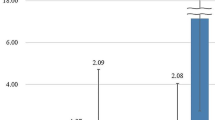Abstract
Objectives:
Our objective was to examine the extent to which serious psychological distress (SPD) is associated with behavioral and social correlates among US adults with self-reported disabilities.
Methods:
Self-reported data on disability, SPD, and behavioral and social correlates were collected from 202,383 participants (aged ≥ 18 years) of the 2007 Behavioral Risk Factor Surveillance System. Adults with self-reported disabilities were identified using two standardized questions – one relating to activity limitation, the other to special equipment.
Results:
The age-adjusted prevalence of SPD among adults with disabilities was nearly seven times higher than among adults without disabilities (14.1 % vs. 1.8 %, respectively). Adults with disabilities who have both activity limitations and who use assistive technology, and those with activity limitations only consistently experienced a higher prevalence of SPD than those who used assistive technology only (age-adjusted prevalence: 21.0 % and 12.7 % vs. 4.9 %). After adjusting for age, sex, race/ethnicity, educational attainment, marital status, and employment status, in the past 30 days SPD was more common among Hispanic persons, and was significantly associated with younger age, lower educational attainment, marital history, and employment status. Adults with SPD and disabilities experienced increased levels of risk behaviors, life dissatisfaction, and inadequate social support. Most importantly, just over half of adults with disabilities and SPD (51.6 % [95 % CI = 48.6–54.6]) were receiving medical care for a mental health condition compared to 20.6 % (95 % CI = 19.9–21.3) without SPD.
Conclusions:
Given that SPD is strongly associated with both the behavioral and psychosocial determinants of health, this work underscores the need for evidence-based interventions that may reduce its prevalence among people living with disabilities.
Similar content being viewed by others
Author information
Authors and Affiliations
Corresponding author
Additional information
Submitted: 03 October 2008; revised: 25 January 2009; accepted: 05 February 2009
Rights and permissions
About this article
Cite this article
Okoro, C.A., Strine, T.W., Balluz, L.S. et al. Serious psychological distress among adults with and without disabilities. Int J Public Health 54 (Suppl 1), 52–60 (2009). https://doi.org/10.1007/s00038-009-0077-z
Published:
Issue Date:
DOI: https://doi.org/10.1007/s00038-009-0077-z




